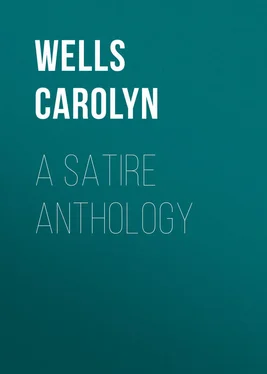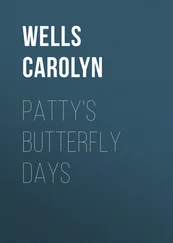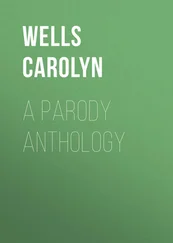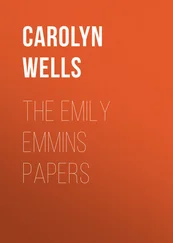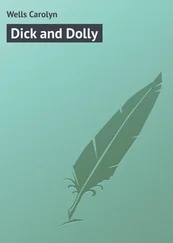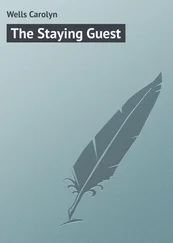Carolyn Wells - A Satire Anthology
Здесь есть возможность читать онлайн «Carolyn Wells - A Satire Anthology» — ознакомительный отрывок электронной книги совершенно бесплатно, а после прочтения отрывка купить полную версию. В некоторых случаях можно слушать аудио, скачать через торрент в формате fb2 и присутствует краткое содержание. Жанр: Юмористические книги, foreign_humor, на английском языке. Описание произведения, (предисловие) а так же отзывы посетителей доступны на портале библиотеки ЛибКат.
- Название:A Satire Anthology
- Автор:
- Жанр:
- Год:неизвестен
- ISBN:нет данных
- Рейтинг книги:5 / 5. Голосов: 1
-
Избранное:Добавить в избранное
- Отзывы:
-
Ваша оценка:
- 100
- 1
- 2
- 3
- 4
- 5
A Satire Anthology: краткое содержание, описание и аннотация
Предлагаем к чтению аннотацию, описание, краткое содержание или предисловие (зависит от того, что написал сам автор книги «A Satire Anthology»). Если вы не нашли необходимую информацию о книге — напишите в комментариях, мы постараемся отыскать её.
A Satire Anthology — читать онлайн ознакомительный отрывок
Ниже представлен текст книги, разбитый по страницам. Система сохранения места последней прочитанной страницы, позволяет с удобством читать онлайн бесплатно книгу «A Satire Anthology», без необходимости каждый раз заново искать на чём Вы остановились. Поставьте закладку, и сможете в любой момент перейти на страницу, на которой закончили чтение.
Интервал:
Закладка:
THE QUIDNUNCKIS
“ HOW vain are mortal man’s endeavours?
(Said, at Dame Elleot’s, Master Travers)
Good Orleans dead! in truth ’tis hard:
Oh, may all statesmen die prepar’d!
I do foresee (and for foreseeing
He equals any man in being)
The army ne’er can be disbanded.
I with the king was safely landed.
Ah, friends, great changes threat the land!
All France and England at a stand!
There’s Meroweis – mark! strange work!
And there’s the Czar, and there’s the Turk —
The Pope – ” An Indian merchant by,
Cut short the speech with this reply:
“All at a stand? You see great changes?
Ah, sir, you never saw the Ganges.
There dwells the nation of Quidnunckis
(So Monomotapa calls monkeys);
On either bank, from bough to bough,
They meet and chat (as we may now);
Whispers go round, they grin, they shrug,
They bow, they snarl, they scratch, they hug;
And, just as chance or whim provoke them,
They either bite their friends, or stroke them.
There have I seen some active prig,
To show his parts, bestride a twig.
Lord, how the chatt’ring tribe admire!
Not that he’s wiser, but he’s higher.
All long to try the vent’rous thing
(For power is but to have one’s swing);
From side to side he springs, he spurns,
And bangs his foes and friends by turns.
Thus as in giddy freaks he bounces,
Crack goes the twig, and in he flounces!
Down the swift stream the wretch is borne,
Never, ah, never to return!
Zounds! what a fall had our dear brother!
Morbleu! cries one, and damme, t’other.
The nation gives a general screech;
None cocks his tail, none claws his breech;
Each trembles for the public weal,
And for awhile forgets to steal.
Awhile all eyes intent and steady
Pursue him whirling down the eddy:
But, out of mind when out of view,
Some other mounts the twig anew;
And business on each monkey shore
Runs the same track it ran before.”
THE SICK MAN AND THE ANGEL
Is there no hope? the Sick Man said.
The silent doctor shook his head,
And took his leave with signs of sorrow,
Despairing of his fee to-morrow.
When thus the Man with gasping breath:
“I feel the chilling wound of death;
Since I must bid the world adieu,
Let me my former life review.
I grant, my bargains well were made,
But all men overreach in trade;
’Tis self-defence in each profession;
Sure, self-defence is no transgression.
The little portion in my hands,
By good security on lands,
Is well increased. If unawares,
My justice to myself and heirs
Hath let my debtor rot in jail,
For want of good sufficient bail;
If I by writ, or bond, or deed,
Reduce a family to need,
My will hath made the world amends;
My hope on charity depends.
When I am numbered with the dead,
And all my pious gifts are read,
By heaven and earth ’twill then be known,
My charities were amply shown.”
An angel came. “Ah, friend,” he cried,
“No more in flattering hope confide.
Can thy good deeds in former times
Outweigh the balance of thy crimes?
What widow or what orphan prays
To crown thy life with length of days?
A pious action’s in thy power;
Embrace with joy the happy hour.
Now, while you draw the vital air,
Prove your intention is sincere:
This instant give a hundred pounds;
Your neighbours want, and you abound.”
“But why such haste?” the Sick Man whines:
“Who knows as yet what Heaven designs?
Perhaps I may recover still;
That sum, and more, are in my will.”
“Fool,” says the Vision, “now ’tis plain,
Your life, your soul, your heaven was gain;
From every side, with all your might,
You scraped, and scraped beyond your right;
And after death would fain atone,
By giving what is not your own.”
“Where there is life there’s hope,” he cried;
“Then why such haste?” – so groaned, and died.
SANDYS’ GHOST
YE Lords and Commons, men of wit
And pleasure about town,
Read this, ere you translate one bit
Of books of high renown.
Beware of Latin authors all!
Nor think your verses sterling,
Though with a golden pen you scrawl,
And scribble in a Berlin;
For not the desk with silver nails,
Nor bureau of expense,
Nor standish well japanned avails
To writing of good sense.
Hear how a ghost in dead of night,
With saucer eyes of fire,
In woful wise did sore affright
A wit and courtly squire.
Rare Imp of Phœbus, hopeful youth,
Like puppy tame that uses
To fetch and carry, in his mouth,
The works of all the Muses.
Ah, why did he write poetry,
That hereto was so civil,
And sell his soul for vanity,
To rhyming and the devil?
A desk he had of curious work,
With glittering studs about;
Within the same did Sandys lurk,
Though Ovid lay without.
Now, as he scratched to fetch up thought,
Forth popped the sprite so thin,
And from the key-hole bolted out,
All upright as a pin,
With whiskers, band, and pantaloon,
And ruff composed most duly.
The squire he dropped his pen full soon,
While as the light burnt bluely.
“Ho! Master Sam,” quoth Sandys’ sprite,
“Write on, nor let me scare ye;
Forsooth, if rhymes fall in not right,
To Budgell seek, or Carey.
“I hear the beat of Jacob’s drums;
Poor Ovid finds no quarter.
See first the merry P – comes
In haste, without his garter.
“Then lords and lordlings, squires and knights,
Wits, witlings, prigs, and peers;
Garth at St. James’s, and at White’s,
Beat up for volunteers.
“What Fenton will not do, nor Gay,
Nor Congreve, Rowe, nor Stanyan,
Tom Burnett or Tom D’Urfey may,
John Dunton, Steele, or anyone.
“If Justice Philips’ costive head
Some frigid rhymes disburses,
They shall like Persian tales be read,
And glad both babes and nurses.
“Let Warwick’s muse with Ashurst join,
And Ozell’s with Lord Hervey’s;
Tickell and Addison combine,
And Pope translate with Jervas.
“Lansdowne himself, that lively lord,
Who bows to every lady,
Shall join with Frowde in one accord,
And be like Tate and Brady.
“Ye ladies, too, draw forth your pen;
I pray where can the hurt lie?
Since you have brains as well as men,
As witness Lady Wortley.
“Now, Tonson, ’list thy forces all,
Review them, and tell noses;
For to poor Ovid shall befall
A strange metamorphosis;
“A metamorphosis more strange
Than all his books can vapour.”
“To what” (quoth squire) “shall Ovid change?”
Quoth Sandys, “To waste paper.”
FROM “THE EPISTLE TO DR. ARBUTHNOT”
“ SHUT, shut the door, good John!” fatigued I said;
Tie up the knocker; say I’m sick, I’m dead.
The dog-star rages! nay, ’tis past a doubt,
All Bedlam, or Parnassus, is let out;
Fire in each eye, and papers in each hand,
They rave, recite, and madden round the land.
What walls can guard me, or what shades can hide?
They pierce my thickets, through my grot they glide.
By land, by water, they renew the charge;
They stop the chariot, and they board the barge.
No place is sacred, not the church is free;
Ev’n Sunday shines no Sabbath-day to me;
Then from the Mint walks forth the man of rhyme,
Happy to catch me – just at dinner-time.
Is there a parson much bemus’d in beer,
A maudlin poetess, a rhyming peer,
A clerk foredoom’d his father’s soul to cross,
Who pens a stanza when he should engross?
Is there, who, lock’d from ink and paper, scrawls
With desperate charcoal round his darken’d walls?
All fly to Twit’nam, and in humble strain
Apply to me, to keep them mad or vain.
Arthur, whose giddy son neglects the laws,
Imputes to me and my damn’d works the cause;
Poor Cornus sees his frantic wife elope,
And curses wit, and poetry, and Pope.
Friend to my life (which did you not prolong,
The world had wanted many an idle song),
What drop or nostrum can this plague remove?
Or which must end me, a fool’s wrath or love?
A dire dilemma – either way I’m sped;
If foes, they write; if friends, they read me dead.
Seiz’d and ty’d down to judge, how wretched I,
Who can’t be silent, and who will not lie.
To laugh, were want of goodness and of grace;
And to be grave, exceeds all power of face.
I sit with sad civility; I read
With honest anguish, and an aching head,
And drop at last, but in unwilling ears,
This saving counsel, “Keep your piece nine years.”
“Nine years!” cries he, who high in Drury Lane,
Lull’d by soft zephyrs through the broken pane,
Rhymes ere he wakes, and prints before term ends,
Oblig’d by hunger, and request of friends:
“The piece, you think, is incorrect? Why take it;
I’m all submission; what you’d have it, make it.”
Three things another’s modest wishes bound,
My friendship, and a prologue, and ten pound.
Pitholeon sends to me: “You know his grace.
I want a patron: ask him for a place.”
Pitholeon libell’d me. “But here’s a letter
Informs you, sir, ’twas when he knew no better.
Dare you refuse him? Curll invites to dine;
He’ll write a journal, or he’ll turn divine.”
Bless me! a packet. “’Tis a stranger sues,
A virgin tragedy, an orphan muse.”
If I dislike it, “Juries, death, and rage!”
If I approve, “Commend it to the stage.”
There (thank my stars!), my whole commission ends;
The players and I are luckily no friends.
Fir’d that the house reject him, “’Sdeath! I’ll print it,
And shame the fools. Your interest, sir, with Lintot.”
“Lintot, dull rogue! will think your price too much.”
“Not, sir, if you revise it, and retouch.”
All my demurs but double his attacks;
At last he whispers, “Do, and we go snacks.”
Glad of a quarrel, straight I clap the door:
“Sir, let me see your works and you no more!”
Интервал:
Закладка:
Похожие книги на «A Satire Anthology»
Представляем Вашему вниманию похожие книги на «A Satire Anthology» списком для выбора. Мы отобрали схожую по названию и смыслу литературу в надежде предоставить читателям больше вариантов отыскать новые, интересные, ещё непрочитанные произведения.
Обсуждение, отзывы о книге «A Satire Anthology» и просто собственные мнения читателей. Оставьте ваши комментарии, напишите, что Вы думаете о произведении, его смысле или главных героях. Укажите что конкретно понравилось, а что нет, и почему Вы так считаете.
